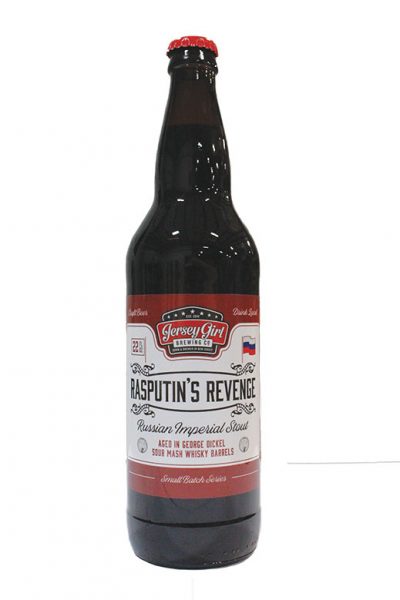
Pumping co2 into tanks of beer ready for packaging—a process called force carbonation—is how most commercial beer gets its bubbles. But some craft brewers are doing it the centuries-old way, by “conditioning” it in the individual bottles, cans or kegs in which it will be sold. A dose of sugar and, sometimes, new yeast is added, triggering a second fermentation that, over the course of weeks, creates gentle bubbles.
That’s not all it does, according to Chuck Aaron, co-owner of Jersey Girl Brewing in Hackettstown, which conditions all its beers this way. “We achieve improved foam retention, flavors become more complex and mouth-feel is improved,” he says.
The world’s most famous bottle-conditioned beverage is Champagne, and the method used with beer is similar. It extends shelf life and, in fact, allows for long aging in bottle, can or keg.
“Though we won’t have the data for decades,” says James Priest, founder and head of the Referend Blendery in Hopewell, “we expect our beers to mature in the bottle for anywhere from three to 30 years, possibly longer.”
I recently tasted a Unibroue 17, a bottle-conditioned dark ale from the Canadian brewery Unibroue. Bottled in 2010, it was rich in caramel and dark chocolate flavors, yet had a delicate mouthfeel, despite a strong 10 percent ABV.
The danger of bottle- and can-conditioning is of excess pressure building up and cans or bottles bursting. Some Jersey brewers have had to retrieve burst bottles and cans from around the state this year. The remedy involves, among other things, limiting the amount of sugar put into the bottle or can. Priest says he monitors bottles up to a year before releasing.
“In the end,” says Aaron, “it is really worth the time and effort.”



